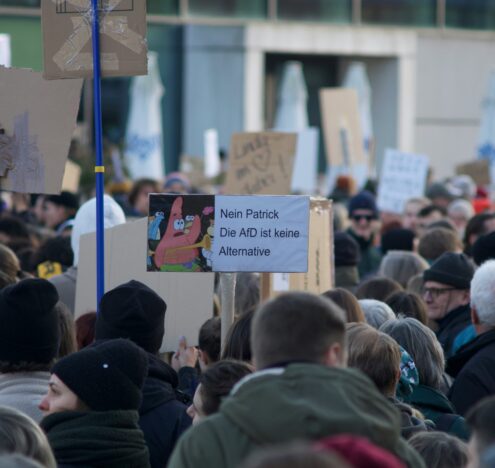This analysis was featured in Critical State, a weekly newsletter from Inkstick Media and The World. Subscribe here.
Faced with limited public trust in policing, and especially with the limits of police capacity to tackle such real threats as armed crime, cartel warfare, and major trafficking in illicit contraband, it is unsurprising that some governments will turn the military inwards. This process, by which soldiers take on the role of police, is “constabularization,” and it poses a thorny policy problem: Can soldiers do police work, and can they do it while protecting the rights of the public they are there to serve?
In “The Consequences of Militarized Policing for Human Rights: Evidence from Mexico,” authors Gustavo Flores-Macías and Jessica Zarkin conclude that introducing soldiers to the work of policing leads to a 150% increase in federal complaints against federal security forces. This same increase does not happen when soldiers are deployed to help with disaster relief.
Can soldiers do police work, and can they do it while protecting the rights of the public they are there to serve?
Mexico is fertile ground for this study, in part because it has such a direct onset of constabularization of the military in 2006 and because Mexico’s National Human Rights Commission has a fairly seamless process for receiving and processing complaints. Thanks to dogged right-to-information requests, the researchers were able to build baseline levels of complaints about federal security forces and police before constabularization. Then, over the duration of 2000-2016, they were able to track this individually by province, as the deployment of soldiers in policing happened at different times in different places.
Looking at that data, the researchers “find that the rate (per 100,000) of serious human rights abuse complaints against federal security agencies in constabularized municipalities is .42 higher in the first year and between .43 and .61 in three subsequent years of military involvement in domestic policing, compared to non-constabularized municipalities. These effects represent yearly increases of between 150% and 218%.”
This increase is at odds with the favorable public opinion of the military and the relative professionalization of military forces compared to local police. But it does indicate how military and police training differs; while the military uses maximum force to diffuse situations, the police are supposed to use the minimum amount.
Note the researchers, “It is not that civilian police are always respectful of human rights (police forces in countries as diverse as Brazil, Chile, Colombia, and Mexico have been criticized for using excessive force against civilians), but that constabularized soldiers’ greater disruptive capacity, lack of training for policing missions, and greater impunity together likely result in a comparatively higher prevalence of abuses in the context of domestic policing.”
This illustrates the tension faced by political leaders throughout Latin America. Soldiers can be a capable tool for police work that most resembles a war, such as tackling cartels like an armed insurgency. But it poses a risk to civilian populations to deploy soldiers as police this way, as their impunity, tactics, and weapons have a demonstrable increase in abuses.
“Therefore,” conclude the authors, “the military’s participation in security operations should be limited both geographically and temporally, and always while simultaneously strengthening local police forces and the judiciary.”




















